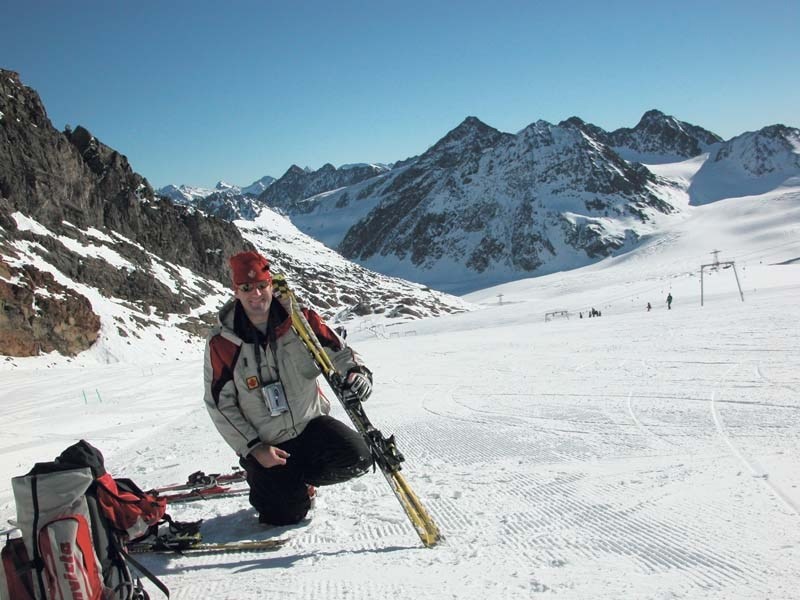The 1988 Calgary Winter Olympic Games inspired a lifetime of commitment for one Cochrane coach, who has just been inducted into the Paralympic Hall of Fame.
“It was just exciting to have sport of that level in Calgary; such high performance athletes and high performance opportunities,” remembered Ozzie Sawicki of witnessing the pinnacle of sports competition for the first time.
“I just got so engaged with the Games that I started coaching the next year … and never really looked back.”
Since that experience, Sawicki turned his passion into a lifetime pursuit, representing Canada as a coach at four Paralympic Games, including as head of the Canadian Para-Alpine Ski Team in Salt Lake City in 2002 (where the squad brought home 12 medals). He also served as performance adviser for the country’s para-equestrian team at the London 2012 Summer Games.
Most recently, he was Chef de Mission in Sochi in 2014.
Last week, it was announced that he – along with Carla Qualtrough, paralympic swimmer and federal Minister of Sport and Persons with Disabilities; Maureen Orchard, International Wheelchair Basketball Association secretary general; Archie Allison, Variety Village sports centre director; and Karolina Wisniewska, eight-time para-alpine skier– will be inducted this year into the Paralympic Hall of Fame.
The group will be celebrated in Ottawa in April for their contributions to para sport.
“It’s humbling,” said Sawicki. “When you get recognized for something like this, it’s a recognition of a lot of people’s efforts. You don’t coach in isolation – you learn from a lot of people, you have a lot of mentors. It’s work that you take pride in.”
Mac Marcoux, an elite para-alpine skier who took home three gold medals in Sochi and just last week clinched four golds and a silver at the World Para-Alpine Skiing Championships in Tarvisio, Italy, said the honour given to Sawicki is well-deserved.
“He does amazing things for para sport. You can really tell that he cares about its progression,” said Marcoux, adding Sawicki is known not only for his prowess as a mentor, coach and ambassador – but for his unique fashion sense on the hill.
“He always has a big pair of fur mitts, making him an easy person to spot in a crowd,” Marcoux said with a smile.
Sawicki was an amateur ski racer through university and has coached athletes from a local to international level. He now runs a sports leadership management company and consults for para and able-bodied teams around the world.
He has lived in Cochrane for the last 11 years.
Sawicki said para-sport – a term used to describe sports that are parallel to those for able-bodied athletes, but with adapted equipment or rules – has come into the spotlight in recent years.
“Even when I look back 10, 15 years ago, very few people knew about it. The awareness level about people understanding what para is has gone up significantly,” he said, adding it’s thrilling for any sports fan to watch the finesse, skill and talent at an elite level.
“Once people come and see para sport, they tend to really stick with it.”
While competition is just as fierce in para as in able-bodied, Sawicki said there are differences in the level of closeness he sees outside of the games on his side of the sport that he doesn’t always on the other.
“You see athletes trying to figure out what (each other) is doing equipment-wise. You see more of an interest in working co-operatively,” he said. “It’s a close community.”
The one place Sawicki says there isn’t any difference is in how he develops those athletes who have the drive to make it all the way to the top.
“At the end of the day, an athlete is an athlete,” he said. “You work with them at a level no differently from an able-bodied athlete: you don’t really think of the disability at all.
“That’s the important part – focusing on the ability, not the disability. These are a group of people who are committing to being the best in the world.”



